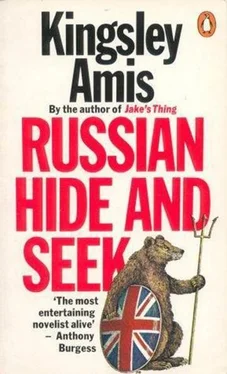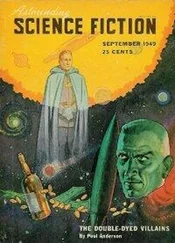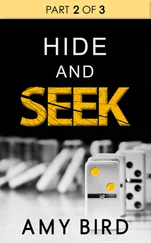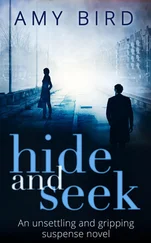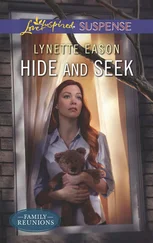Kingsley Amis - Russian Hide-and-Seek
Здесь есть возможность читать онлайн «Kingsley Amis - Russian Hide-and-Seek» весь текст электронной книги совершенно бесплатно (целиком полную версию без сокращений). В некоторых случаях можно слушать аудио, скачать через торрент в формате fb2 и присутствует краткое содержание. Жанр: Современная проза, на английском языке. Описание произведения, (предисловие) а так же отзывы посетителей доступны на портале библиотеки ЛибКат.
- Название:Russian Hide-and-Seek
- Автор:
- Жанр:
- Год:неизвестен
- ISBN:нет данных
- Рейтинг книги:3 / 5. Голосов: 1
-
Избранное:Добавить в избранное
- Отзывы:
-
Ваша оценка:
- 60
- 1
- 2
- 3
- 4
- 5
Russian Hide-and-Seek: краткое содержание, описание и аннотация
Предлагаем к чтению аннотацию, описание, краткое содержание или предисловие (зависит от того, что написал сам автор книги «Russian Hide-and-Seek»). Если вы не нашли необходимую информацию о книге — напишите в комментариях, мы постараемся отыскать её.
A handsome and highly sexed young Russian cavalry officer, Alexander Petrovsky, joins the plot and learns to his regret that politics and playmates don't mix.
"Funny, cynical, captivating-Amis makes an implausible situation almost believable, then lets his characters worry their way out." (B-O-T Editorial Review Board)
Russian Hide-and-Seek — читать онлайн бесплатно полную книгу (весь текст) целиком
Ниже представлен текст книги, разбитый по страницам. Система сохранения места последней прочитанной страницы, позволяет с удобством читать онлайн бесплатно книгу «Russian Hide-and-Seek», без необходимости каждый раз заново искать на чём Вы остановились. Поставьте закладку, и сможете в любой момент перейти на страницу, на которой закончили чтение.
Интервал:
Закладка:
‘You saw nothing, you stupid rookie,’ said Lyubimov with good-natured contempt. ‘Where have you hidden the bottle?’
Lomov was still looking rather oddly at Alexander. ‘Are you all right, sir? Are you well?’
‘Fuck your mother!’ snarled Alexander, his considerate, protective manner vanished. ‘Don’t try and play games with me, you son of a whore, or I’ll break your back. Now shut your mouth and get this stuff loaded.’
It was soon done, a projectile-launcher and its mounting on the near side of each pack-saddle, the projectiles themselves with their red-painted nose-cones in bandoliers on the off. With Polly already ridden hard that day, Alexander had taken his orderly’s horse, in effect his own second mount, a big stallion (black, needless to say) with nothing of the mare’s kind temperament, but he was a good straight mover and had plenty of heart. Earlier, there had been an emotional farewell to Polly at the troop lines; not that Alexander had any settled expectation of not seeing her again, or of anything else, but one never knew, and it sounded good.
Down to the main gate they moved in file: Alexander, Lyubimov, Lomov. Little Lomov was possessed by excitement, also by fear, beyond that by a deeper, more unreasoning fear, by dread. Even considering the state of the light, he had been able to make out remarkably little about whoever it was had walked those half-dozen metres out of the house and then back again. He had had a brief impression of extreme thinness and a great many teeth. Perhaps the other two had failed to notice the stranger because he had not in fact drawn level with them, had followed them to tell them or ask them something, thought better of it and removed himself. Perhaps. Lomov tried to forget it.
Thunder, much nearer now, crackled round the sky behind them. They were going to get soaked to the skin very soon, he thought to himself; the light cape each man carried attached to the rear of his saddle would be poor protection against the kind of downpour that impended. As he glanced about him at the grazing horses, the hurrying or strolling groups of men and the assortment of buildings that housed them, he could not believe he was about to leave the place that was all he had known of home for the past three years, very likely never to return. No doubt that disbelief was the cause of his almost total lack of regret at the prospect. Or it might have been the excitement. That seemed real enough. He was riding off on an operation that had been only sketchily described to him, and even parts of that description he found obscure. Other parts, however, had been quite plain, plain enough to justify moderate fear in anyone of moderate prudence, and Lomov easily fitted into that class. On the other hand, he felt that until a moment ago the whole of his life (he was twenty-three) had been spent passing time, getting through the day, waiting for something to start. Well, something had started now. If he had felt any differently, he would not have been where he was at this moment. How Lyubimov felt was another matter altogether. He was unpredictable. A good soldier, Lyubimov, a good NCO and a good friend, but inclined to be unpredictable. Impulsive, too.
They clattered through the gateway, across the road and on to the broad verge, riding east. Alexander ordered a trot. Just afterwards, thunder came from almost overhead and with the utmost abruptness; the noise was like the ripping of an enormous sheet of canvas. All the horses started violently and Lyubimov’s pack-horse reared for a second or two; not having the reassuring presence of a man on his back, he could hardly be blamed. Still no rain fell, though the light was getting worse all the time. They had rounded a bend and gone about a kilometre when Alexander swung his right arm in an over-arm bowling motion – ‘Follow me’; a spoken order would not have been heard for the thunder, now continual. He put his horse into a gallop and easily cleared the low fence into a large field of pasture. As soon as the others had completed the jump he gave the signal to halt, then the one to dismount. Leading his horse he walked over to Lyubimov. For what was to follow, words would be preferable if they could be heard at all.
‘Put up One!’ he shouted.
‘Put up One, sir.’ Lyubimov turned away to his pack-saddle.
‘Direction west six!’
This time there was no acknowledgement.
‘Direction west six, you pig!’
Turning his head so that he spoke half over his shoulder, Lyubimov bawled, ‘The regiment’s thereabouts, sir. Is that the target?’
Most of the reply was drowned in thunder, but its drift was clear: the order was to be obeyed and no questions asked. There was a short pause. Lightning flashed ceaselessly over the surrounding fields. Then Lyubimov swung round holding his pistol pointed at Alexander’s middle. Next he depressed a stud in front of the trigger-guard, thus switching from single-shot fire to automatic and by the action threatening not to kill or maim but to rend apart; Alexander understood that well enough. Finally Lyubimov shouted,
‘I’m sorry, sir, but I won’t do it, and I won’t let you do it either. Are you with me, Lomov?’
‘Yes!’
‘Do as you’re told!’ screamed Alexander.
‘I’m sorry, your honour. We’ll blow up Vanag and his men for you and welcome, but we won’t see our own lads harmed. Make up your mind to that.’
Alexander raved for nearly five minutes. His main theme was that the two were behaving in this way, not out of comradeship or humanitarianism, but as an expression of the envy and malice which vile creatures like them must naturally feel for anyone of his exalted state. Much of his tirade could not be heard, and much of what could be heard was unintelligible to Lomov, who even so decided that some turns of phrase would not have been disowned by the regimental farrier-major. He felt embarrassment too, and at one point acute alarm, when it seemed that the officer would strike the corporal and be blown in half for his pains (there were limits to Lyubimov’s unpredictability). But the moment passed.
Suddenly it was all over, and Lomov found himself looking at the back view of a man on a horse moving away from him at full gallop.
‘Come on!’ yelled Lyubimov. ‘There’s no knowing what he might get up to in that state.’
It had sounded rather like an excuse, but Lomov ran for his mount as fast as he could.
Now, as the early-autumn evening closed in, a long chase began. One after the other Lyubimov and Lomov jumped the fence into the next field, and the next, and the next, then into a lane which they crossed into a patch of thin woodland. The thunder receded, returned and once more receded without bringing a drop of rain. In his grey uniform and on his black horse, Alexander was not an easy figure to spot among the shadows, and twice they almost lost him in the woods, but he had not had much more than a hundred metres’ start and the more intensive training of his men had made it possible for them to narrow the gap. On the flat, things were more equal; even so, when the woods were behind them and they entered on a wide expanse of level grass with patches of scrub, the pursuers had the advantage of being able to traverse the chord of any arc traced by the pursued. Here Lyubimov gained slightly on Lomov. Strands of lightning came into view and were gone so fast that the reactions of the retina could not keep pace and vision became fogged.
It may have been this impairment which prevented Lomov from seeing the man on the grey horse until he was almost level with him. The horse was grey only in the language of horsemen; other people would have called it white, or rather not exactly white, nor any shade of grey; there was no naming its colour satisfactorily. Lomov thought he had never seen a horse stand so still. Its rider, a tall man in black, wore a hat that shaded his face, though his posture indicated that he was watching the chase, more particularly the one being chased, with intense interest. He did not return Lomov’s wave.
Читать дальшеИнтервал:
Закладка:
Похожие книги на «Russian Hide-and-Seek»
Представляем Вашему вниманию похожие книги на «Russian Hide-and-Seek» списком для выбора. Мы отобрали схожую по названию и смыслу литературу в надежде предоставить читателям больше вариантов отыскать новые, интересные, ещё непрочитанные произведения.
Обсуждение, отзывы о книге «Russian Hide-and-Seek» и просто собственные мнения читателей. Оставьте ваши комментарии, напишите, что Вы думаете о произведении, его смысле или главных героях. Укажите что конкретно понравилось, а что нет, и почему Вы так считаете.
